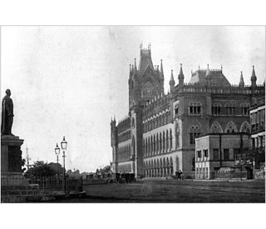Jour Fixe
Jour Fixe
- Date: Apr 11, 2016
- Time: 12:00 PM - 01:00 PM (Local Time Germany)
- Speaker: Dr. Verena Steller
- Historisches Seminar, FB 08 der Goethe-Universität Frankfurt am Main
- Topic: Empire’s Law? The “rule of law” in British India , 1858-1950
- Location: Max Planck Institute for European Legal History
- Room: Lecture hall of the MPI
